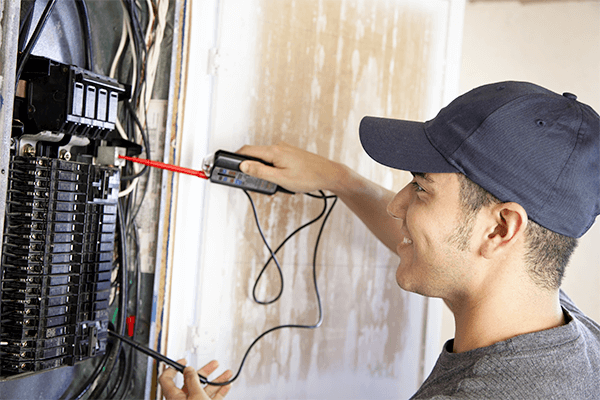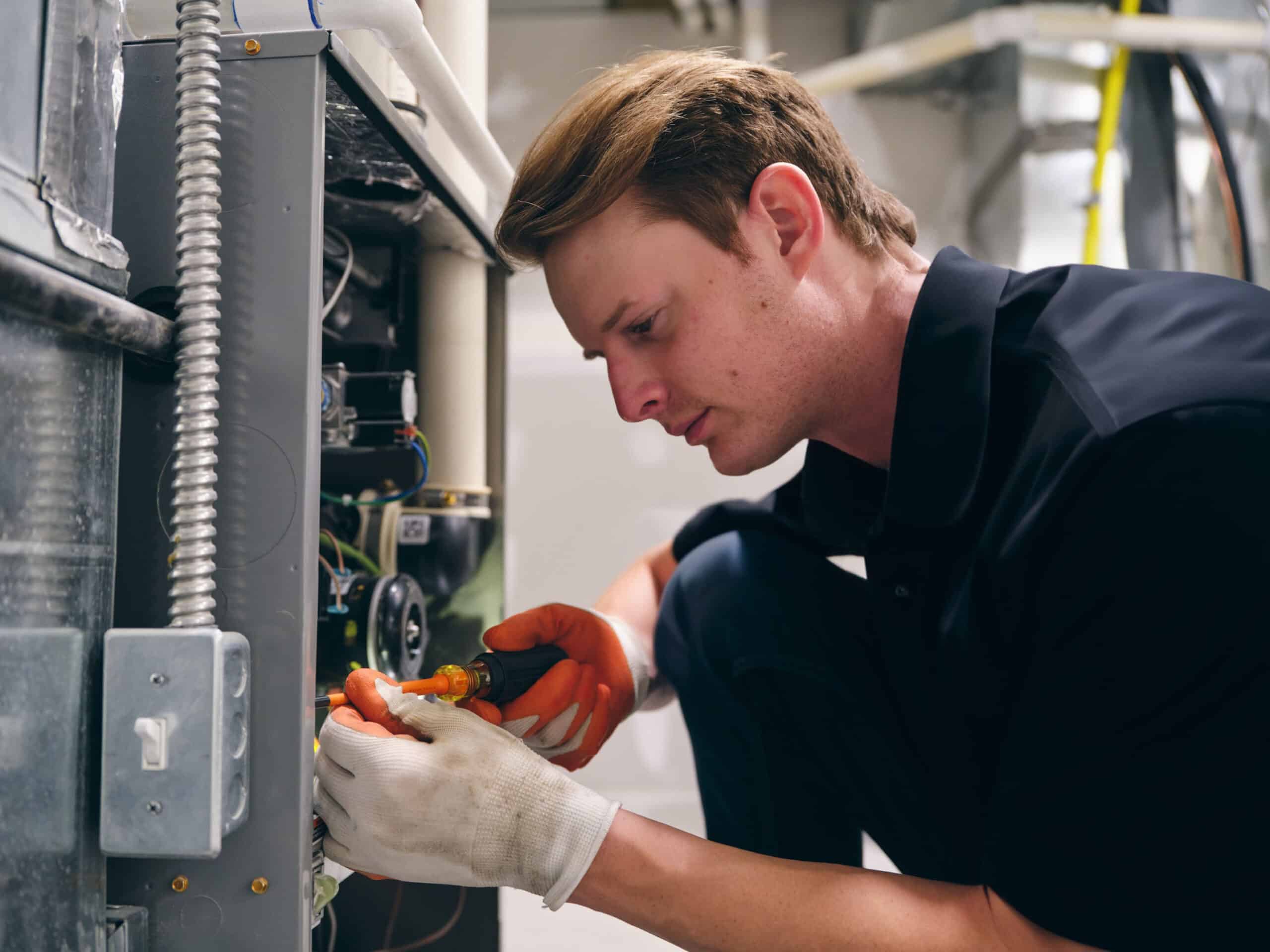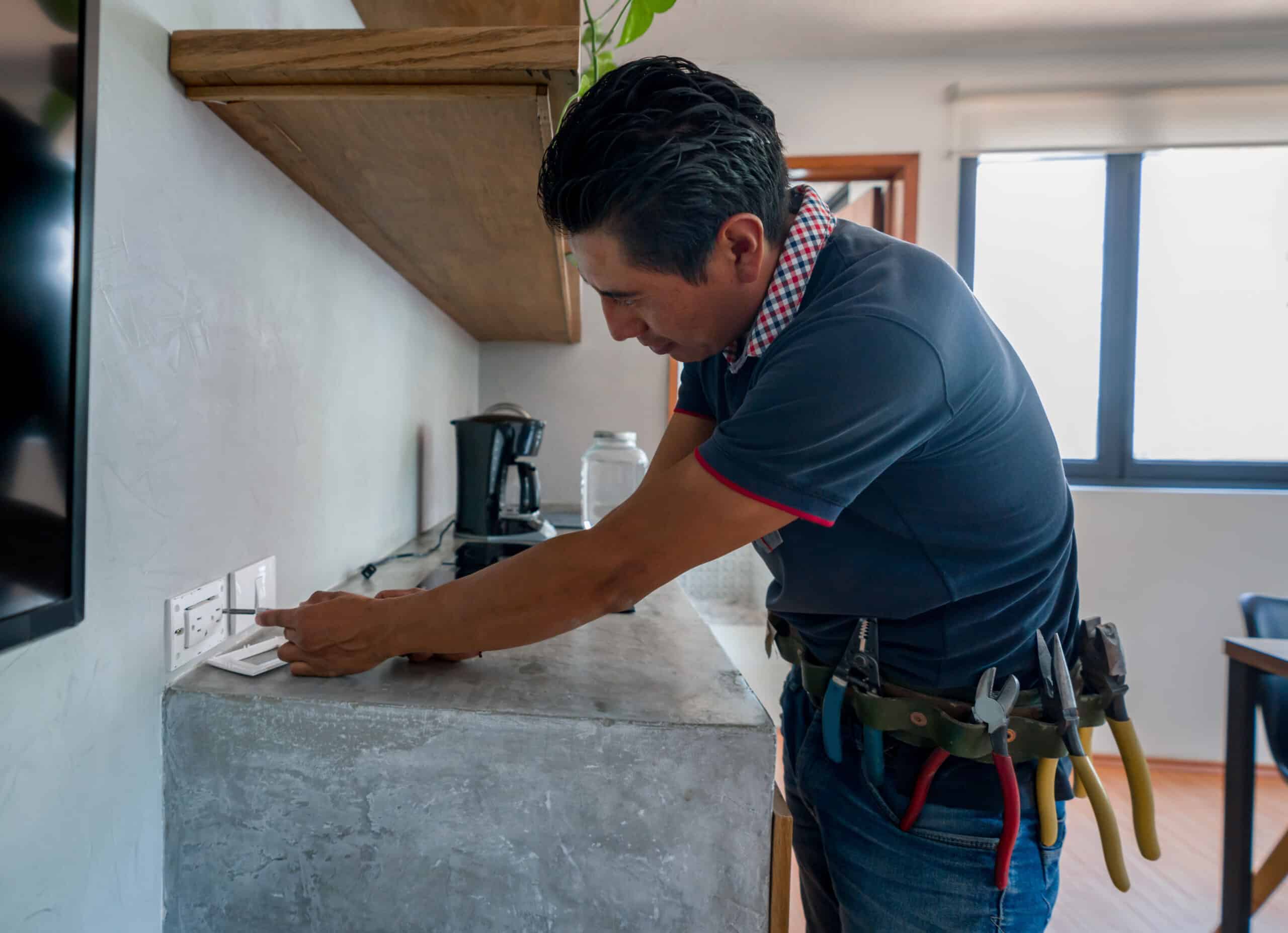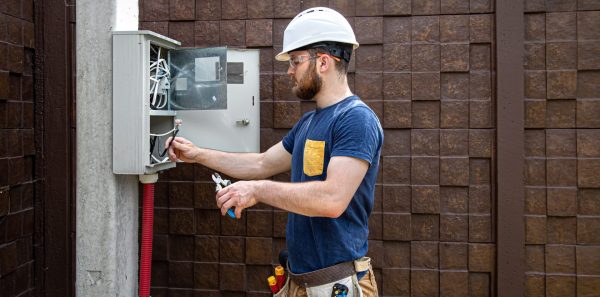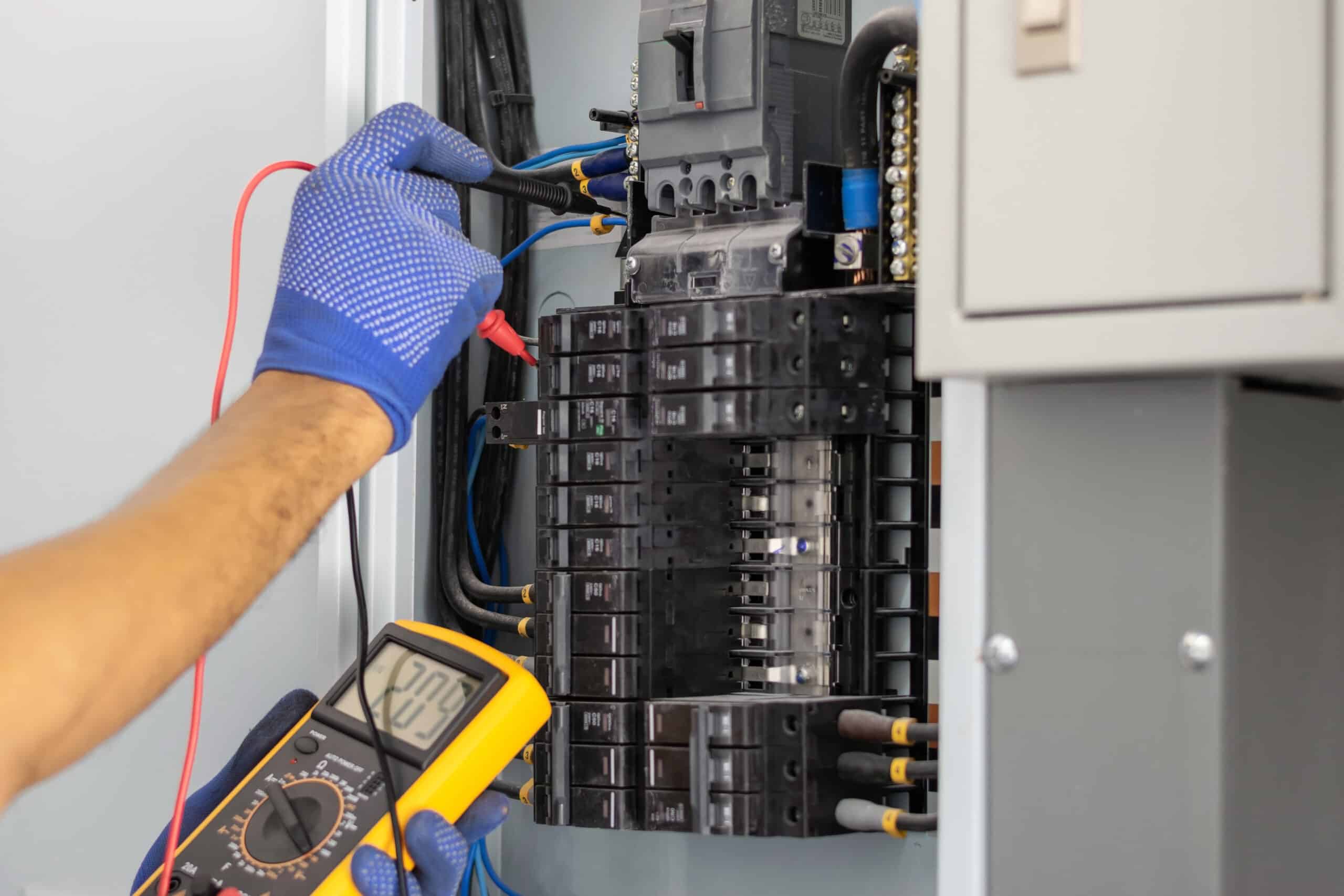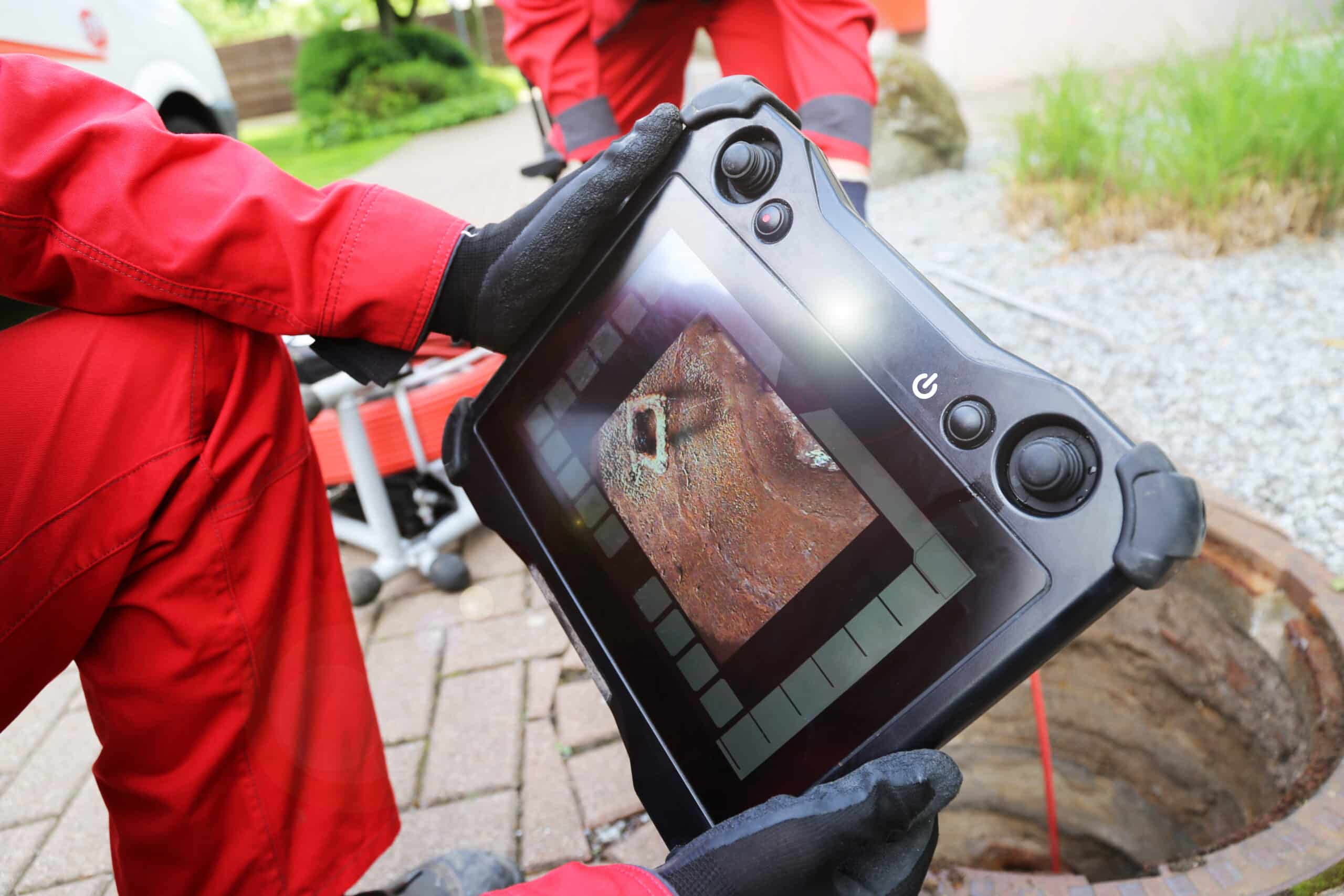If you have electrical or wiring work that you need completed, then you are in need of an electrical contractor. However, you might have to distinguish between residential and commercial electricians if the work is to be done in a business setting. As you look for qualified commercial contractors, you might be wondering if it’s possible to have a residential electrician do the work instead of a commercial professional. In most cases, this situation simply won’t work. Both kinds of electricians have specific areas of expertise, and they utilize different materials, equipment and tools in their work. In most states, they may also require different certifications.
Choosing Your Contractor Type
Depending on the kind of property or structure that you need electrical services for, the kind of electrician you need to bring in can get complicated. It’s not as simple as saying that residential electricians handle places where people live. There are instances where commercial electricians will work on large apartment buildings. Also, commercial electricians might not handle facilities that are used by businesses, such as warehouses, factories and plants. This work would be performed by industrial electricians. Even though commercial electricians typically know how to do much of what residential electricians do, they may not be certified to work in a residential setting. There is a process for finding the right specialist for your project.
An Overview of Residential Electricians
Residential electricians go through a period of training to learn how to work on electrical systems that are commonly found in homes. Once they have become licensed, they have the knowledge and ability to work in standalone houses, townhomes, condos and some smaller apartment buildings. They handle the installation, maintenance, and repairs of electrical components in a home, such as outlets, wiring, appliances, security systems, smoke detectors and light fixtures. They might work on larger projects, such as home additions or remodeling. New construction is a common source of work as well.
Becoming a residential electrician typically requires the educational level of a high school graduate. After that, prospects will go through an apprenticeship program that lasts several years. During this time, they receive training on the job from experienced electrical professionals. This includes learning about routine safety procedures and how to use equipment and tools properly. Most municipalities require licensing exams that cover the information learned, focusing on safety protocols, local building codes and the
National Electrical Code.
An Overview of Commercial Electricians
Commercial electricians have obtained the training that is necessary for working on the electrical systems of commercial properties and businesses. Specific examples include restaurants, retail stores and office buildings. They handle the installation, maintenance and repairs of the outlets, wiring and light fixtures in such buildings. However, this equipment is often very different from what can be found in residential homes. The applicable building codes that they must comply with are also very different. Commercial electricians can work on anything from new construction projects to renovations.
Commercial electrical training has both similarities and differences with the residential career path. In both cases, a high school diploma or equivalent is a common requirement. Also required will be a number of years of apprenticeship. However, commercial electricians usually get more in-depth technical training with regard to building codes, safety procedures and the NEC.
Varying Job Responsibilities
Residential and commercial electricians have similarities when it comes to the installation, maintenance and repair of things like electrical wiring, outlets, lighting and appliances. The amount of detail that goes into commercial work is typically much more substantial. For instance, commercial electricians may take on a project that focuses on large wiring systems in tube conduits, for the construction of large power supplies. Alternatively, residential electricians usually work with smaller wiring systems that feature plastic sheathing, tucked away into crawl spaces where they are out of the physical sight of anyone living in the home.
These two kinds of electricians also work with different voltages. Residential electricians usually work with what are categorized as high voltage systems, and these are between 120 and 240 volts to supply residential homes with their power. On the other hand, commercial electricians often deal with systems categorized as extra high voltage systems that are in excess of 240 volts for large commercial structures and applications.
Building codes that apply to each kind of work can vary. Residential electricians might have their work inspected by government authorities, and there is an emphasis on safety for families that are living in these homes. Safety is also crucial to commercial electricians’ work, but this might include the need for backup power sources for medical labs, grocery stores, law enforcement facilities and hospitals. The number of people in commercial buildings is much higher than the number of people in a home, so the specifics of a job can vary.
Required Technical Skills
A residential electrician is unlikely to be qualified for commercial work. However, they often start their careers in the same manner that commercial technicians do with regard to training and education. Trade schools and apprenticeships are common in both career pathways. However, commercial electricians often obtain more experience along the way, allowing them more professional opportunities. The work that they do is often more complicated in nature, with safety being a big concern given the number of people and activity that occurs in commercial facilities. While some states actually permit DIY electrical wiring in residential homes, commercial work requires the knowledge and expertise of electricians who have learned about things such as control systems, phase diagrams, and voltage balancing.
Project Sizes Vary
Commercial electricians work on projects that are much bigger than what residential electricians typically handle. Their job sites can range from office buildings to entire shopping malls. They might even handle what private citizens consider residential properties, but on a larger scale, including huge estate homes and apartment buildings. This is where the electrical needs are just as complicated as a more typical commercial project. All of these scenarios require an extensive amount of skill, time and labor. Commercial electricians sometimes have the opportunity to handle large-scale residential matters, depending on local licensing requirements and building codes. Commercial electrical contractors often have much more work available to them, reaping the benefits of a wider job market.
Furthering Professional Knowledge and Expanding Opportunities
Residential electricians have the ability to move up to commercial work if they so desire. There is a certain degree of education, certification and licensing that must be obtained under a master electrician’s supervision. The specific skills needed for commercial work are different from those needed for residential projects in regard to a new set of safety measures, electrical regulations, electrical theory and blueprint reading.
Not All Electricians Are the Same
Residential and commercial electricians do a lot of the same work, but there are differences in what they are able to complete. The kind of electrician you need is based on the specific property and project in question. We at Eck Services provide residential electrical services for the Kansas markets of Anthony, Hutchinson, Kingman, Medicine Lodge, Pratt and Wichita. We also provide
oilfield electrical services in many areas. Contact us for all of your electrical needs, and also talk to us about any cooling, heating, plumbing or indoor air quality services you need.


